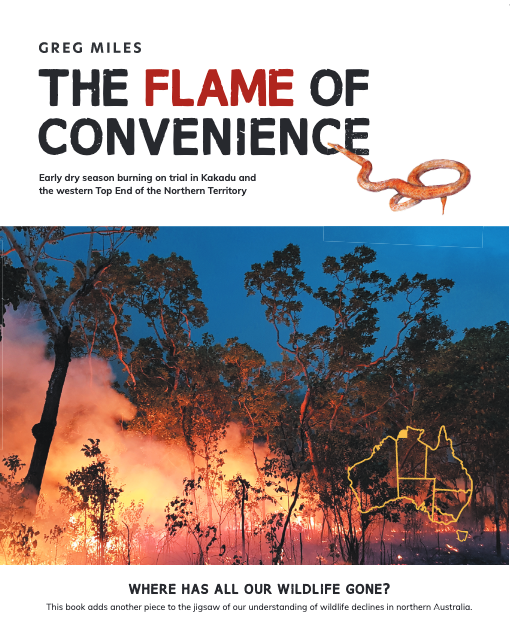About the author
In 1974 Greg Miles was appointed as a ranger in the top end of the Northern Territory, Australia. This was an exciting challenge for someone who, right from a young boy growing up in mid north South Australia, had been keeping native animals as pets. His professional wildlife career began when he became a bird and reptile keeper at Adelaide Zoo. From there he moved on to be the keeper in charge of terrestrial reptiles at the Australian Reptile Park at Gosford before moving on to the reptile house at Melbourne Zoo.
As a Wildlife Ranger based in Darwin he managed wildlife licencing and pursued bird traffickers and barramundi poachers. Also in 1974 he was tasked with finding 20 cane toads that had escaped from a schoolteacher in Darwin’s northern suburbs. 18 of the 20 toads were recovered.
In 1976, he was posted to a ranger’s position at Cannon Hill on the edge of the East Alligator River. A caravan here became his new home where his wife and first baby joined him. It was in these early days that Greg and Jane became friends with the senior Aboriginal people of Kakadu. It was a rare, never to be repeated privilege to share time and country with people who still possessed an encyclopaedic knowledge of country and culture.
Greg spent 26 years in Kakadu as Chief Ranger, park naturalist and photographer. He later headed up various park projects including tour operator training. There was a two-year break when he was the Government Conservator on Christmas Island (Indian Ocean).
During his career, Greg’s primary focus was on habitat management for wildlife conservation. The work involved controlling invasive weeds and feral animals. This included weeks spent in a helicopter shooting buffalo, cattle, pigs and horses for the Brucellosis and Tuberculosis Eradication Campaign. This perched seat enabled him to learn to read the health of country before and after fires. But perhaps more importantly was time spent experimenting with different fire regimes and refining the methodology for burning in the wet season.
In 1988 he wrote the book “Wildlife of Kakadu” which sold more than 24,000 copies.
Sadly, despite the best efforts of people in Kakadu, he witnessed the unstoppable declines of numerous animal species that had been so numerous in those early days. It was this depressing situation that spawned the genesis of this new book.
In 2004 he retired to his Darwin rural property where he breeds pig nosed turtles and is a conservation lobbyist. He sees captive breeding and fenced enclosures as the best future strategy for saving threatened plant and animal species.















